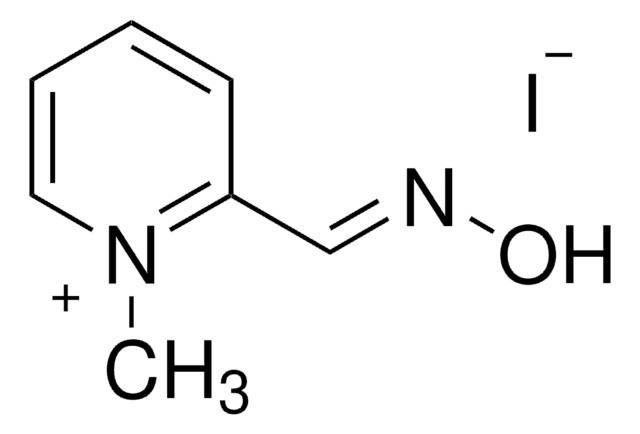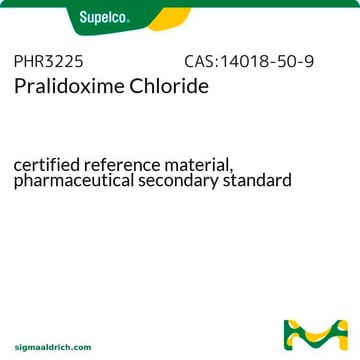P9053
Pyridine-2-aldoxime methochloride
Synonym(s):
2-PAM chloride, Pralidoxime chloride
About This Item
Recommended Products
biological source
synthetic (organic)
form
solid
mp
230 °C (lit.)
solubility
water: 50 mg/mL, clear, colorless to faintly yellow
SMILES string
[Cl-].C[n+]1ccccc1\C=N\O
InChI
1S/C7H8N2O.ClH/c1-9-5-3-2-4-7(9)6-8-10;/h2-6H,1H3;1H
InChI key
HIGSLXSBYYMVKI-UHFFFAOYSA-N
Gene Information
human ... ACHE(43)
Looking for similar products? Visit Product Comparison Guide
Biochem/physiol Actions
Signal Word
Warning
Hazard Statements
Precautionary Statements
Hazard Classifications
Acute Tox. 4 Dermal - Acute Tox. 4 Inhalation - Acute Tox. 4 Oral
Storage Class Code
11 - Combustible Solids
WGK
WGK 1
Personal Protective Equipment
Certificates of Analysis (COA)
Search for Certificates of Analysis (COA) by entering the products Lot/Batch Number. Lot and Batch Numbers can be found on a product’s label following the words ‘Lot’ or ‘Batch’.
Already Own This Product?
Find documentation for the products that you have recently purchased in the Document Library.
Customers Also Viewed
Our team of scientists has experience in all areas of research including Life Science, Material Science, Chemical Synthesis, Chromatography, Analytical and many others.
Contact Technical Service













